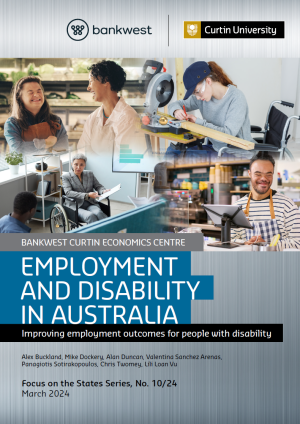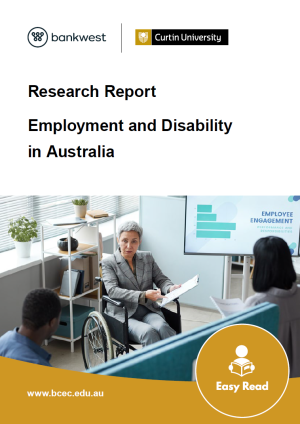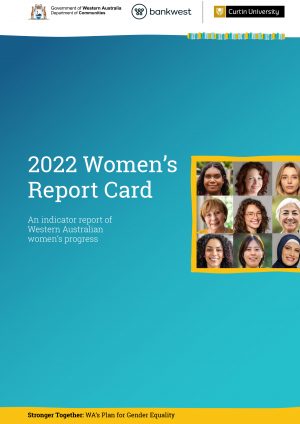2022 Women’s Report Card
The 2022 Women’s Report Card sets out the status and current state of play of women in Western Australia, and in doing so, helps to track progress to achieving better outcomes for women.
As is the case to varying degrees across the globe, women in WA face many inequalities, discrimination, and disadvantage across various aspects of life. Together these factors impact negatively on women’s ability to engage and participate fully in their communities, the economy and life more generally.
The primary objective of the Women’s Report Card is to provide reliable information to drive discussion, debate, and advocacy by providing fact-based information.
The 2022 Women’s Report Card is framed around the four priority areas as part of the Western Australian government’s Stronger Together: WA’s Plan for Gender Equality framework: Health and wellbeing; Safety and justice; Economic independence; and Leadership.
Complemented by the WA Women’s Data Insights Platform, the 2022 Women’s Report Card contributes to the evidence base which underpins actions to address the barriers to women’s progress and promote the benefits of greater gender equity.
As of 2021, there were just under 1.05 million adult women (aged 18 years and over) in WA, with women comprising 52 per cent of the WA adult population.
Statistics from the 2022 Women’s Report Card include:
- Women’s workforce participation rate is 64.5 per cent – this is the highest ever rate for women in WA
- The proportion of employed women working full-time in WA is 51.5 per cent, in comparison to 82.6 per cent for employed men in WA
- However, WA’s gender pay gap is 21.2 per cent across all industries, down from 28.2 per cent in 2011, but higher than that reported nationally
- Women’s representation in CEO positions across Australian companies and the community sector has increased
- 59.5 per cent of university graduates are female, and have exceeded male graduates since 1985, particularly in the areas of law and accounting
- Teenage women giving birth in WA fell 26.6 per cent since 2016
- Cancer is the leading cause of death for women in WA
- Women continue to face a significantly higher risk of violence than men, particularly sexual and family and domestic violence with a 21 per cent increase in sexual assaults reported to WA police from 769 in 2018-19 to 935 in 2020-21
- Aboriginal and Torres Strait Islander women account for 68 per cent of hospitalisations due to family and domestic violence in WA
- The number of women assisted by specialist homelessness services has increased by 23 per cent in the last ten years
While this report card shows that progress is being made across many indicators of women’s outcomes, many inequalities persist.
This is the seventh Women’s Report Card for WA, and builds on the reports published in 2004, 2006, 2009, 2012, 2015 and 2019.





